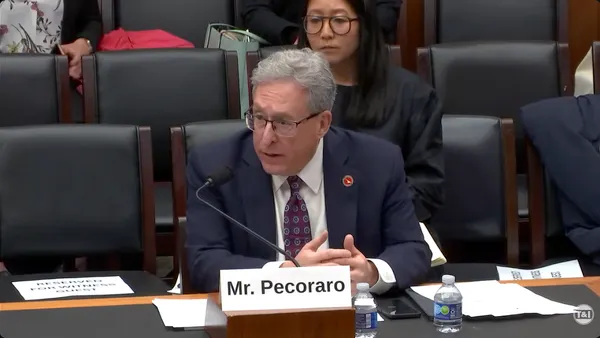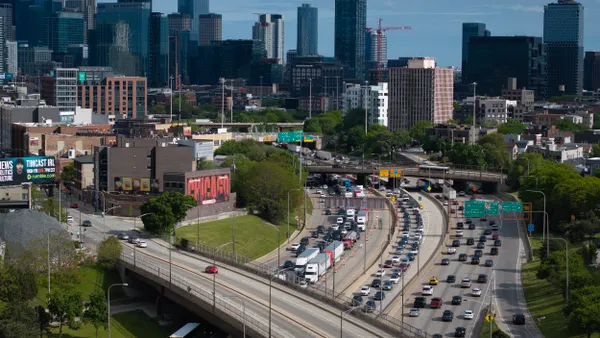Dive Brief:
- Ahead of the United Nations Climate Action Summit, which convenes Monday, leaders at an event hosted by the World Resources Institute (WRI) urged governments to "do something" in the wake of climate change.
- Panelists called on the federal government to provide national leadership in the United States, with some pushing Congress to pass a carbon tax and other pieces of legislation. Others said that the federal government could do more to support climate action efforts at the state and city level, although they acknowledged that under the Trump administration, such moves are unlikely.
- "Some of the inspiration is coming from state and local governments and the tribal entities that are making things happen," said Rep. Paul Tonko, D-NY, who chairs the House Energy and Commerce Committee's Subcommittee on Environment and Climate Change, at the event. "They've said, 'Without leadership in Washington, we're going forward.' They should remind us of that."
Dive Insight:
Since President Trump pulled the United States out of the Paris climate agreement in 2017, local leadership has been at the forefront of efforts to combat global warming. Such efforts have increased in the face of dire predictions about the future state of the planet from the United Nations' Intergovernmental Panel on Climate Change (UN IPCC) and the federal government.
Other leaders have echoed these dire warnings. On Sunday, a number of agencies co-authored a new report dubbed "United in Science," which found the average global temperature for 2015-2019 is on track to be the hottest of any equivalent period since records began. It also found that sea level rise is accelerating, and carbon dioxide emissions grew by 2% in 2018.
Meanwhile, Trump has touted environmental leadership in the U.S., albeit not mentioning the work of mayors and local governments in a recent high-profile address. Mayors have said the federal government must do more to assist such leadership, with suggestions including a new federal department focused on resiliency and a "Marshall Plan for the Midwest" to create jobs in a green economy.
During the panel discussion, Rep. Francis Rooney, R-FL, called carbon pricing the "best alternative for a targeted solution, while Tonko said it would go a long way to righting the wrongs of pollution.
"For far too long we've allowed carbon to be a pollutant, to attack our atmosphere, to destroy our public health," Tonko said. "But we haven't been definitive about assigning a price to that carbon."
Charles Hernick, director of policy and advocacy at Citizens for Responsible Energy Solutions, said the federal government could help localities track their climate goals by introducing its own version of the greenhouse gas emissions registry established under the Paris agreement. Providing that framework could enhance accountability and transparency, he said.
"It's one thing to put a statement out there," Hernick said. "It's another thing to file a report with the federal government and lie. There are repercussions associated with that."
One area of national policy that received only some discussion was the Green New Deal, a series of ambitious goals and targets which was introduced to much fanfare and has since taken hold more locally at the city level. Tonko said that it will help shape future legislation, it is an "aspirational set of goals" that sets a "phenomenal tone."
Panelists said that the best way to ensure climate change stays atop the national and local agenda is through applying public pressure, by engaging with elected officials and taking direct action. That includes climate strikes and other disruptions that are sweeping across U.S. cities, and appear to be focusing some minds as people see the effects of global warming more regularly.
"It's now a backyard issue," Tonko said. "The public is driving all of us to get to work and address climate as a crisis, as an epidemic." Rooney agreed, noting that Florida is "ground zero" for the effects of climate change, and that has spurred action.












